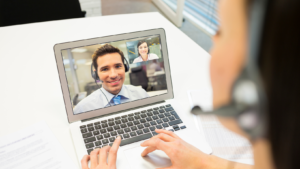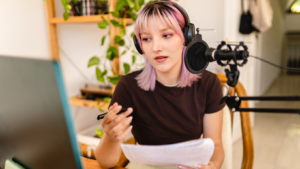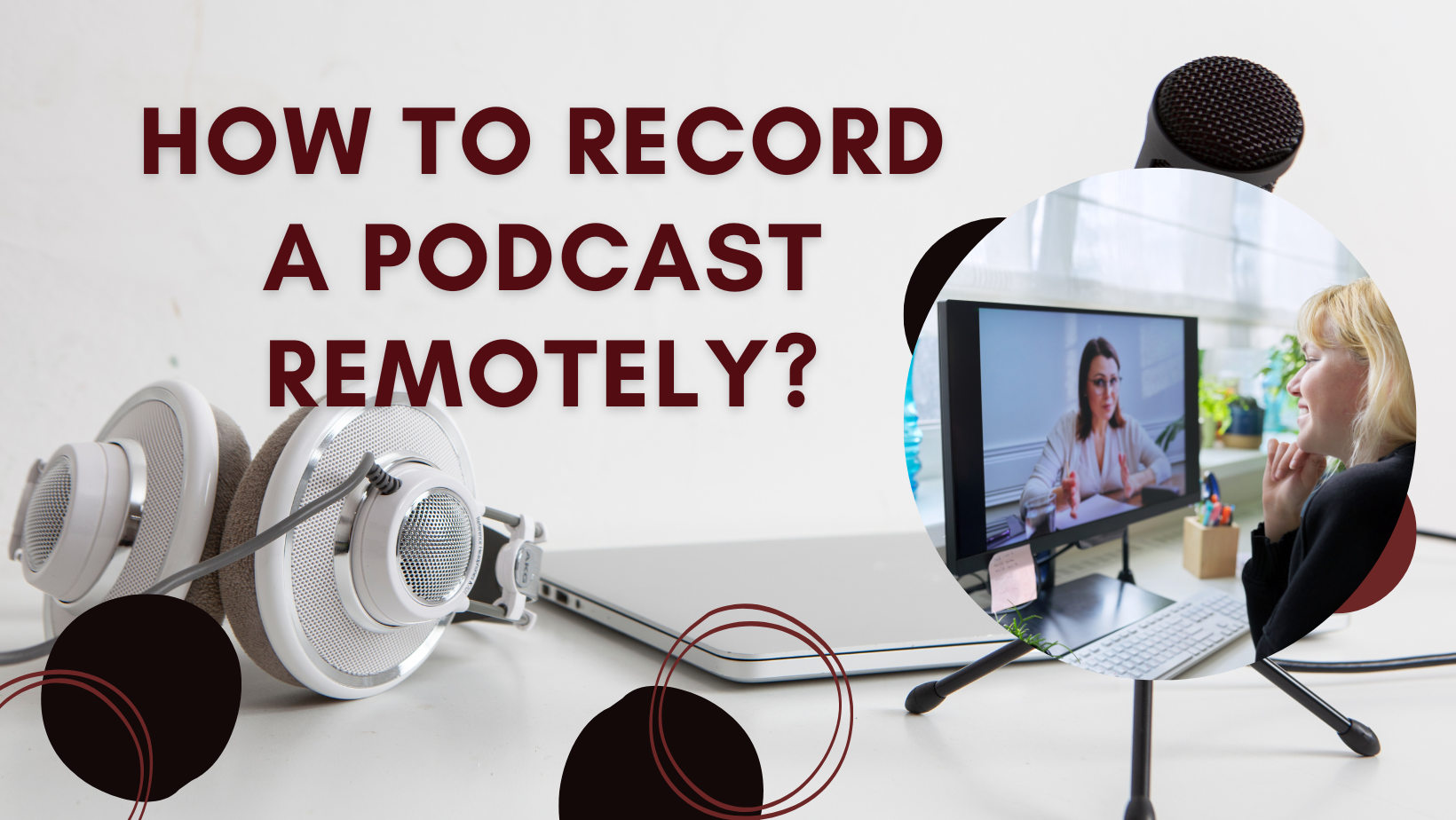Yes, it's absolutely possible to record a podcast remotely. Doing so not only gives you the flexibility to create unique content from anywhere but als
Yes, it’s absolutely possible to record a podcast remotely. Doing so not only gives you the flexibility to create unique content from anywhere but also enables you to feature guests on your show from all corners of the globe.
This ability to collaborate with other podcasters and experts worldwide can really set your show apart by providing fresh perspectives and keeping listeners engaged. All this is achievable without worrying about geographical barriers.
Sounds exciting, doesn’t it? Let’s explore how you can do this!
Selecting the Right Remote Recording Setup
When you’re looking to record your podcast remotely, there are several options available. However, the best choice depends on a few key factors.
First, you need to consider what type of technology both you and your co-hosts have access to. Second, think about your level of experience with recording audio and which method will work best for all involved.
So, what choices do we have and what does each require? Let’s break it down:
4 Different Ways To Record A Podcast Remotely
I. Recording may be Done Individually and Locally
This method is quite complex and should only be used if each speaker has a top-notch audio setup and feels very confident in their ability to record high-quality sound. Once the recording is done, the tracks will be organized based on when they were recorded during the editing process.

You’ll need some sort of audio editing software like Audition or an advanced recording device like Zoom H6 to get really good sound quality. Also, using programs such as Skype or Zoom can help keep track of what everyone’s doing during your recording sessions and ensure everything syncs up properly.
The place where you’re recording matters too. To get great sounding audio, try to avoid places with lots of hard surfaces like tiled rooms. Bear in mind that having a good microphone makes all the difference when it comes to producing top-tier audio recordings.
Although this method might seem a bit challenging at first, it does offer some perks. For instance, you can record whenever suits you best and use the equipment that you prefer most. Just remember though: if your Skype or Zoom session lags for any reason it could mess up your rhythm while recording but don’t let this discourage you.si
II. Utilize a Remote Podcast Recording Platform

Platforms such as Zencastr, Squadcast, Riverside.fm and Ringr have been developed to simplify remote recording. It eliminates complexity by automatically arranging audio tracks requiring a good microphone and a stable internet connection.
However, if the guest only has access to a phone, Ringr will be the way to proceed since it allows you to record your guest locally via their phone’s microphones.
III. Use a Video Conferencing Software

Struggling with a guest who doesn’t have a great microphone? Don’t worry, Zoom and Skype have got your back! These platforms are well-known for their high-quality video calls. All you need is a stable internet connection to ensure top-notch quality videos from both the host and co-host’s end. Plus, if your guest can only join via phone, Skype offers improved audio compared to regular phone call sound quality.
IV. Record your Guests Via Phone with a Mixer

The Rodecaster Pro is an excellent tool designed with podcasters in mind, making it a fantastic addition to any home studio. It’s particularly handy because it allows you to directly input audio into your chosen device without needing to juggle multiple apps or editing programs.
In other words, it simplifies the process beautifully. You just need to connect your phone to the mixer and voila! Your recording software can instantly pick up whatever you’re recording via phone.
However, there are a couple of drawbacks worth noting. Firstly, this piece of kit isn’t cheap so if you’re new to podcasting and still finding your feet, it might not be the best investment for now. Secondly, while using this device does streamline things considerably, bear in mind that if you’re doing remote interviews or chats with guests on your show then not being able to see them could impact the flow of conversation somewhat.
Primary Goal: Keeping the Quality while Recording Remotely
Done with your remote interviews? The next best step is to edit your episode! You might want to throw in an intro and outro, add some background music or even remove a few parts of the interview to make it flawless. This applies whether you’re working with recorded videos or audio files. Therefore, getting hold of and using podcast software and editing tools can really help you up your game!
FAQs |
How can I record a podcast remotely for free?When it comes to recording remotely, Zoom, Skype, and Google Hangouts are the preferred platforms. These options are user-friendly and have decent audio quality, making them suitable for most podcasting purposes. Can I record a podcast on my laptop?In order to create a podcast, you will require a microphone, a computer or tablet, and software for audio editing. After plugging in your microphone to your device, record your episode and edit it. Once completed, export the MP3 file and upload it to a podcast hosting service such as Transistor.fm. What is Zoom?Zoom is a communication tool used as a web conferencing platform, audio and/or video conferencing, and recording. Is it a good choice for podcasting? YES! Zoom has lived up to its reputation of being a trusted podcasting solution, offering an exceptional quality of elements required in podcasting with high-quality audio and videos How do I record a podcast remotely via Zoom?Access your Zoom settings, click on the “Recording” settings and choose “Record a separate audio file for each participant.” This will create a folder with the three typical files: the combined audio, video, and chat transcript after the call has concluded. Furthermore, this feature allows for more efficient sound editing, as adjustments can be made to one person’s audio without affecting the entire recording. |

Final Thoughts on Recording Podcast Remotely
Podcasting from different locations may seem tough at first. But, trust me, once you get used to it, it’s as easy as pie! As you keep honing your skills, your podcast journey will only get better. It might take some time and effort initially to overcome the initial hiccups but soon enough, it’ll feel like a walk in the park.


COMMENTS